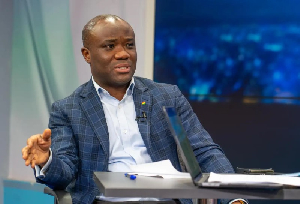Five banks down [two weeks ago], two a year earlier. There are tales of poor governance and lending practices and directors (and shareholders) using client funds to trade for themselves.
So what’s going on? Who do we believe? Is there an effort to do away with local banks? What’s good and what’s bad in these times?
Here goes. A number of the banks gave out loans that went bad. That’s not all. They used up their depositors’ funds for their own personal trades, a cardinal sin in banking. Some of them got their licenses from the central bank without any capital. And some even got their capital using the central bank’s own funds (even the regulator is not that innocent here). How could this have happened to just the local banks? Because we’ve fostered a culture of impunity in Ghana. People, especially the well connected, do just about anything and usually get away with it. Foreign banks also fall foul of the law and the regulators. But they tend to have an extra layer of scrutiny, their offshore owners, and these incline them to be a bit more careful in their dealings with the public. There’s absolutely nothing political about what is going on. There’s everything to applaud about the current clean up. We did not have the guts to check the cancer in the industry a couple of years ago. It’s grown malignant and it was time to excise the rot. If we had waited a bit longer there might have been nothing left to save, period.
So where to put your money? Nothing can ever be 100 per cent safe, not even treasury bills. But there are steps we can take to minimize our risks. Look out for 3 key things when being wooed by a financial institution or a money scheme:
1. Understand the model: In money matters just like in anything else, if it’s too good to be true then it is probably not true. If a company comes knocking on your door promising you say 9% a month on your money think about this, 9% a month works out to 108% a year. Sounds great. But that means they must be earning more than that to be able to give you that 108 per cent. Unless they are a Not-for-Profit. If they tell you they are selling gold (or any other commodity) that means that gold must be doing really well, better than that 108 percent you are getting. But gold has done only about -4 percent in returns since the beginning of the year. It has actually lost value! So why are they offering 9 percent a month? Easy. Because Eunice’s money will be used to pay your interest when due and John’s will be used to pay Eunice’s and Amiki’s to pay John until they all decide to come for their money at the same time and boom, it all goes wrong. That’s called a pyramid (Ponzi) scheme. It never ends well for anyone.
2. Governance. Look out for the little signs. Is the financial firm owned by one single family? Have they set up a number of side firms? A hotel, a school, several new branches? Are they splashing cash all over the place? What is the source of that cash? How do we know it’s not your little deposit they are using instead of their own capital? Remember your deposit is not their capital. It just might be your money that’s being used. Rapid expansion and forays into other businesses could be early warning signals of trouble ahead.
3. Lifestyle. A private jet. A house (or many houses) that’s almost the size of the Jubilee house. A couple of Range Rovers and V8s. These are not by themselves bad things. But when owners of financial firms have more than a few of these you need to start wondering. Is it money that is coming a bit too easily to them? For some reason, wealth that is built the long, hard way tends to be a bit more modestly deployed. Too much showiness too soon and it just might be your cash buying up those assets.
If you are uncomfortable with these pointers you might be onto something. Stop, and seek a number of different opinions. It might mean missing that ‘bar of gold’ or that high return investment. But you see, in the long run, your money will be safe. Remember? If it sounds too good to be true it probably is not true.
Opinions of Monday, 13 August 2018
Columnist: GWEN Foundation PR



















